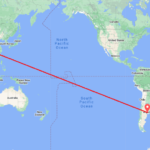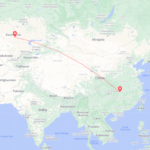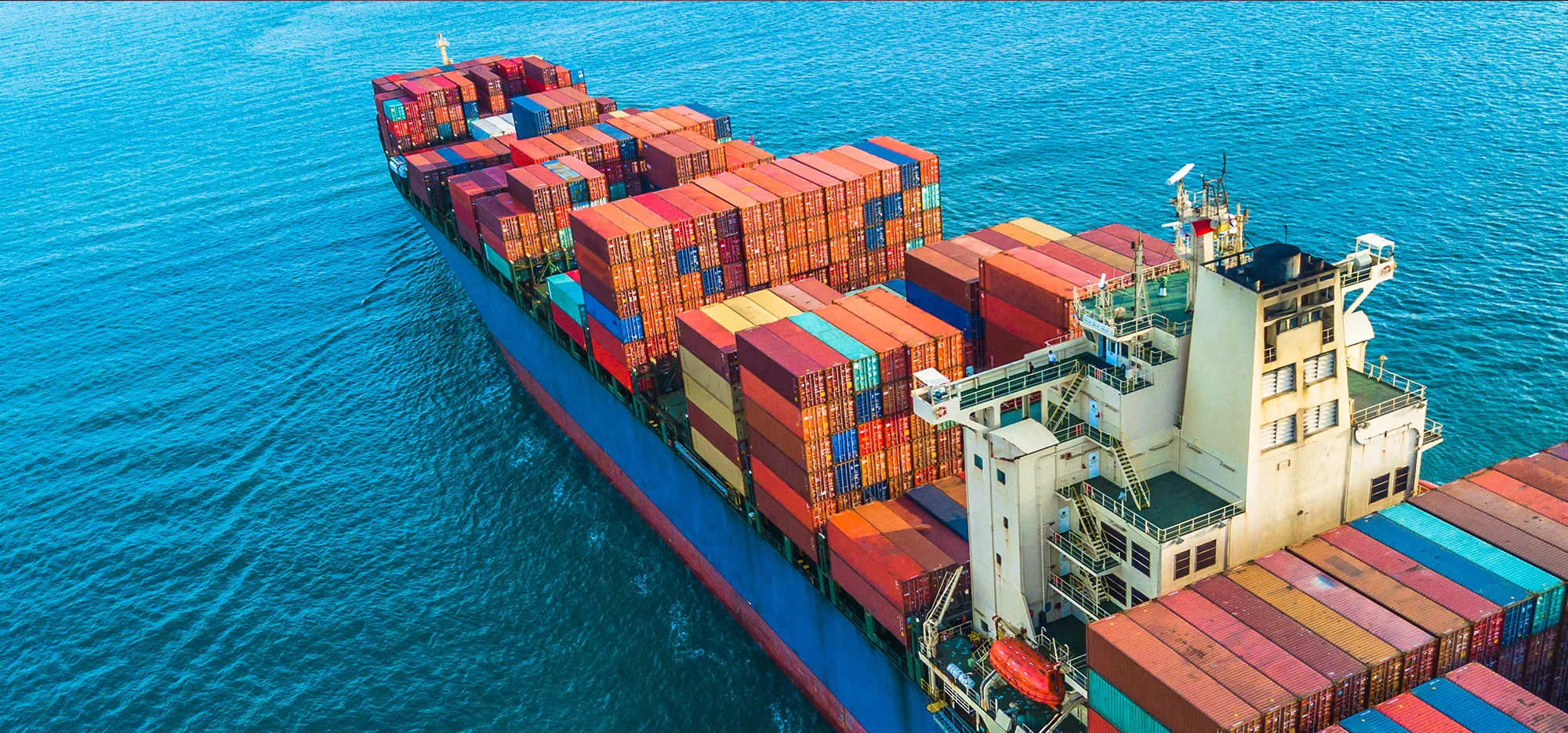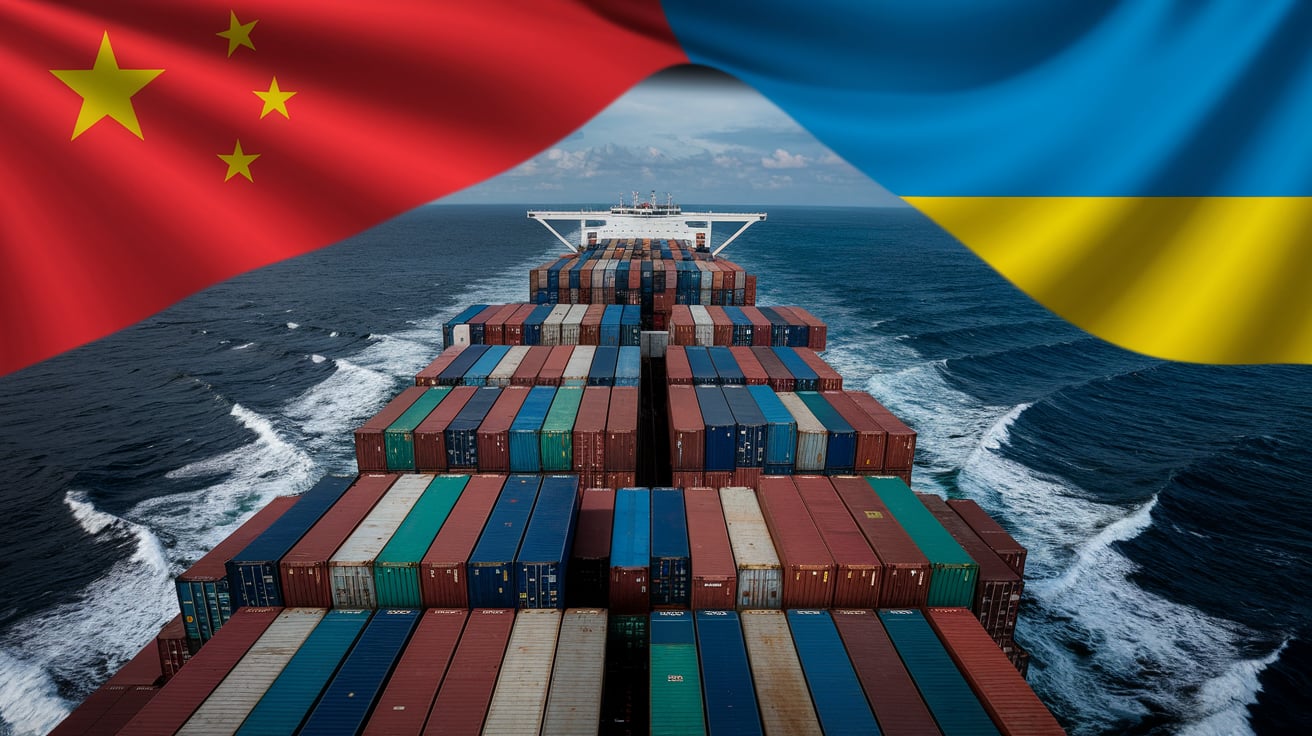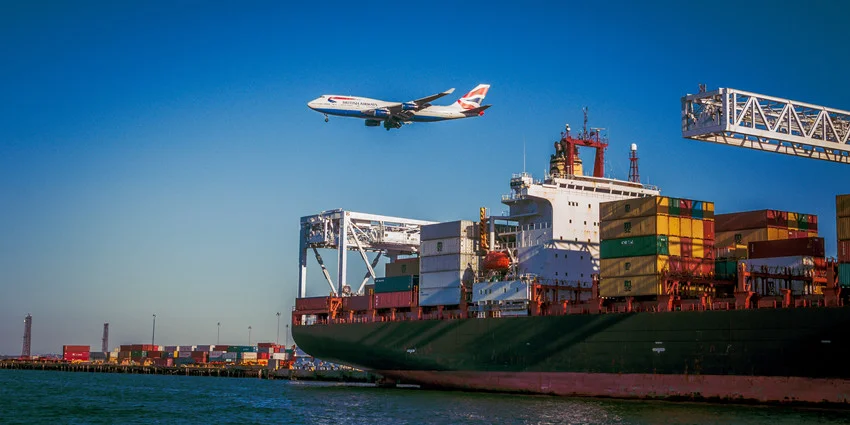As global trade continues to expand, importing goods from China to Argentina has become an increasingly attractive option for businesses seeking cost-effective products. However, navigating the complexities of international shipping can be challenging. Understanding the best shipping methods, selecting a reliable freight forwarder, optimizing packaging, and being aware of import taxes are crucial steps to enhance your logistics strategy and save on costs. This guide will equip you with essential insights and practical tips to streamline your import process, ensuring a smooth and efficient operation while maximizing your savings.
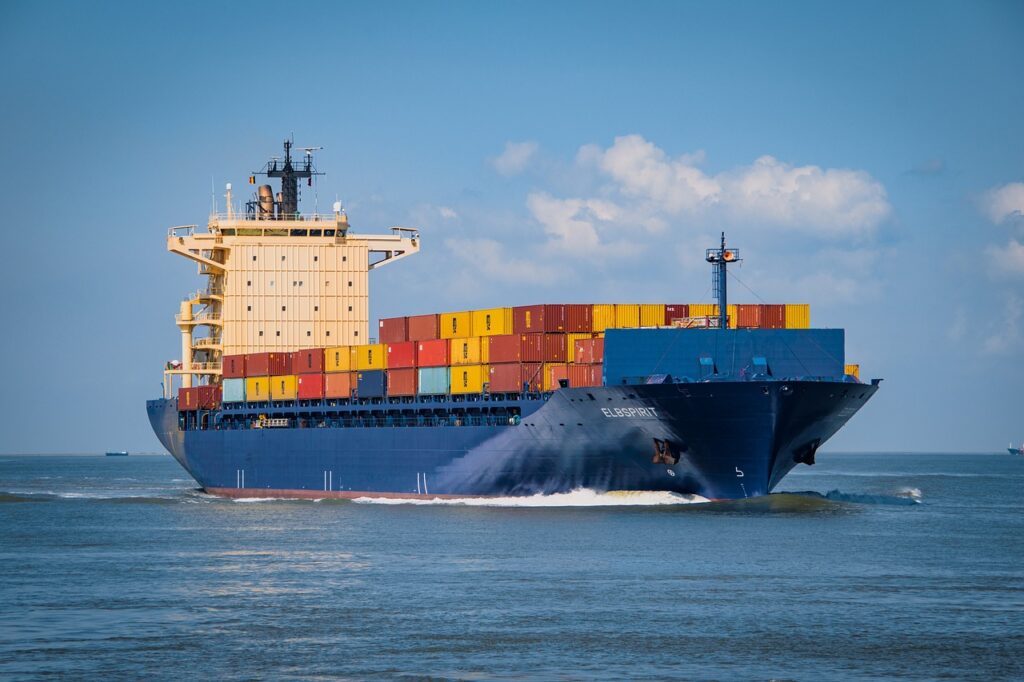
Choose the Right Shipping Method
Choosing the ideal shipping method can significantly impact your overall logistics strategy. The two primary modes of transport—ocean freight and air freight—each come with distinct advantages and disadvantages that should align with your specific needs.
Ocean Freight vs. Air Freight
| Feature | Ocean Freight | Air Freight |
|---|---|---|
| Speed | Slower (typically 20-40 days) | Fastest (1-3 days) |
| Cost | Generally more affordable | Higher costs per kg |
| Capacity | Can handle large volumes | Limited capacity |
| Environment | Higher carbon footprint | Lower carbon emissions per ton-mile |
| Best For | Bulk goods, lower-value items | Urgent shipments, high-value goods |
-
Ocean Freight: Best suited for large shipments, ocean freight is the predominant mode for bulk goods. It is particularly advantageous for businesses looking to reduce shipping costs when transporting large volumes. However, it is essential to factor in transit times, which can be significantly longer than air freight.
-
Air Freight: For goods that require urgent delivery or possess high value, air freight is the optimal choice. Although it comes at a higher cost, the speed of delivery can justify the expense, particularly for perishable items or last-minute orders.
FCL vs. LCL
-
FCL (Full Container Load): If your shipment occupies an entire container, FCL is most economical. Ideal for large quantities, it ensures quicker loading/unloading processes and lower shipping rates per unit.
-
LCL (Less than Container Load): For smaller shipments, LCL allows you to share container space with other cargo, reducing costs. However, it may involve longer transit times due to consolidation.
Factors to Consider
When selecting your shipping method, consider the following factors:
-
Nature of Goods: Assess whether your goods are perishable, fragile, or high-value, as these factors significantly influence your choice between air freight and ocean freight.
-
Urgency: If your business timeline is tight, prioritize faster shipping methods.
-
Budget: Understand your shipping budget and weigh the costs against the required speed and volume of goods.
-
Destination: Evaluate the shipping infrastructure of your destination country. Some regions may not have robust air freight logistics.
Find a Reliable Local Freight Forwarder in China
Partnering with a trustworthy freight forwarder is essential for streamlining your logistics operation. A local freight forwarder can provide valuable insights into the Chinese market and facilitate smoother transactions.
Benefits of Using a Chinese Freight Forwarder
-
Local Knowledge: A Chinese freight forwarder possesses an intricate understanding of local regulations, customs, and market conditions, which can help navigate potential hurdles during the import process.
-
Network Access: Established relationships with shipping lines, customs officials, and warehouses can expedite processes and reduce costs.
-
Comprehensive Services: Many freight forwarders offer additional services such as customs clearance, warehouse services, and insurance services, which can simplify your supply chain management.
What to Look for in a Freight Forwarder
When selecting a freight forwarder, consider the following criteria:
-
Experience: Look for a freight forwarder with a proven track record in handling shipments similar to yours.
-
Certifications: Ensure they are certified by relevant authorities, such as the International Air Transport Association (IATA) and the Freight Forwarders Association.
-
Customer Reviews and References: Research online reviews and request references from previous clients to gauge their reliability and service quality.
-
Services Offered: Choose a freight forwarder that provides a comprehensive suite of logistics services, including door-to-door shipping services, which can eliminate the need for multiple vendors.
Negotiating the Best Rates
-
Understand Market Prices: Research prevailing rates for your specific routes and shipping volumes to have a benchmark for negotiations.
-
Be Transparent: Clearly communicate your shipping needs and volumes to allow the freight forwarder to provide the most accurate quotes.
-
Long-Term Partnership: Consider establishing a long-term relationship with a forwarder, as they may offer better rates for sustained business.
By utilizing this guide, you can navigate the complexities of importing goods from China more effectively. Dantful International Logistics stands ready to assist with a broad range of freight forwarding solutions tailored to meet your specific needs. Our services encompass air freight, ocean freight, customs clearance, and more. For a seamless import experience, consider partnering with Dantful, where expertise and reliability converge to meet your logistics needs. Contact us today to explore our services and how we can help you achieve your import goals.
READ MORE:
- Shipping From China to the United States
- Shipping From China TO Canada
- Shipping From China TO Mexico
- Shipping From China to Panama
- Shipping From China to Costa Rica
- Shipping From China to Brazil
- Shipping From China TO Colombia
- Shipping From China to Jamaica
- Shipping From China to Venezuela
Optimize Your Packaging and Utilization
Effective packaging and utilization of shipping containers are vital in international logistics. By focusing on these aspects, businesses can minimize costs and enhance the protection of their products.
Proper Packaging to Minimize Damage
Ensuring that products arrive at their destination intact is paramount. Here are key considerations for effective packaging:
-
Material Selection: Choose durable materials suited for your products. For fragile items, consider using double-walled boxes or custom packaging solutions that provide added protection.
-
Layering and Padding: Use adequate padding materials such as bubble wrap or foam peanuts to fill voids within the box. Layering can help absorb shocks during transit.
-
Testing: Conduct drop tests or vibration tests on your packaging to assess its durability under various conditions. Testing helps identify weaknesses and allows you to make necessary adjustments.
-
Labeling: Properly label packages with handling instructions, such as “Fragile” or “This Side Up,” to guide freight handlers during the shipping process.
Maximizing Container Space
Efficient use of container space can lead to significant cost savings:
-
Stackability: Design packaging that allows for stacking. Uniform shapes and sizes can help utilize vertical space within containers efficiently.
-
Palletization: Use pallets to group similar items together. When pallets are loaded onto a container, they should fit snugly to minimize movement and reduce the risk of damage.
-
Load Planning: Collaborate with your freight forwarder to develop an optimal load plan. They can provide insights into container dimensions and weight limits to maximize space utilization.
Calculating Dimensional Weight
Understanding dimensional weight pricing can significantly affect your shipping costs. Most freight carriers charge based on the greater of actual weight or dimensional weight.
-
Dimensional Weight Formula: Calculate dimensional weight by using the formula:
[
\text{Dimensional Weight} = \frac{\text{Length} \times \text{Width} \times \text{Height}}{\text{Dimensional Factor}}
]
The dimensional factor is typically 5000 for air shipments and 6000 for ocean shipments, though you should confirm with your carrier. -
Optimization: If the dimensional weight exceeds the actual weight, consider redesigning your packaging to reduce overall dimensions or using lighter materials to minimize costs.
Plan Ahead for Shipments
Strategic planning is vital for timely deliveries and cost management. By anticipating shipping needs, businesses can avoid potential pitfalls associated with logistics.
Booking Containers in Advance
-
Early Reservations: Securing your container space well in advance can help avoid last-minute scrambles and ensure you have the capacity needed for your shipments. Aim to book at least 4-6 weeks ahead of your desired shipping date.
-
Flexibility in Schedules: When possible, remain flexible with your shipping dates to accommodate changes in vessel schedules or availability.
Avoiding Peak Season Surcharges
-
Understanding Seasonal Trends: Familiarize yourself with peak shipping seasons, such as Chinese New Year and other holidays, when demand for shipping capacity surges. During these times, carriers often impose surcharges due to limited availability.
-
Strategic Timing: Plan your shipments to avoid these peak periods. If unavoidable, consider alternative shipping methods or routes to mitigate costs.
Staggering Shipments
-
Distribution of Shipment Volume: Instead of sending large shipments at once, consider staggering shipments over time. This technique not only eases freight costs but also helps manage inventory levels more efficiently.
-
Inventory Management: Work closely with your suppliers and logistics partners to align shipment schedules with sales forecasts. Staggering shipments can help maintain a steady flow of goods without overwhelming your storage capacity.
Effective packaging and strategic planning are pivotal components of a successful import operation. By implementing these practices, businesses can optimize logistics processes, minimize costs, and enhance product integrity. Dantful International Logistics is equipped to support your efforts with our extensive range of freight forwarding services, including customs clearance, warehouse services, and door-to-door shipping. For a seamless import experience, connect with Dantful to explore how we can elevate your logistics strategy.
Leverage Your Freight Forwarder’s Expertise
A freight forwarder serves as a critical partner in facilitating your logistics operations. By leveraging their expertise, you can navigate customs regulations, track shipments effectively, and receive tailored solutions that cater to your specific needs.
Customs Clearance Assistance
Customs clearance is one of the most challenging aspects of international shipping, often fraught with complexities and potential delays. Here’s how a freight forwarder can assist:
-
Regulatory Knowledge: Freight forwarders possess in-depth knowledge of customs regulations and procedures in both China and the destination country. They stay updated on any changes in regulations that may affect your shipment.
-
Documentation Preparation: Working with a freight forwarder ensures that all necessary documentation, such as commercial invoices and packing lists, are prepared accurately and submitted timely. This minimizes the risk of delays at customs.
-
Tariff Classification: Understanding the correct tariff classification for your goods is essential for accurate duty assessment. Freight forwarders can assist in determining the appropriate codes to ensure compliance and avoid unexpected charges.
-
Duty and Tax Calculation: They can provide accurate estimates of import duties and taxes, helping you budget effectively and avoid surprises upon arrival.
Tracking and Monitoring
Real-time tracking and monitoring of shipments can significantly enhance visibility and control over your logistics operations. Freight forwarders offer:
-
Advanced Tracking Systems: Most reputable freight forwarders provide access to online tracking systems, allowing you to monitor your shipment’s status in real time. This feature enhances transparency throughout the shipping process.
-
Proactive Communication: Your freight forwarder can proactively communicate any updates or issues that arise during transit. This level of communication allows you to make timely decisions and adjustments as needed.
-
Risk Management: Freight forwarders can identify potential risks in your supply chain and offer solutions to mitigate them, such as rerouting shipments or adjusting delivery schedules.
Customized Solutions
Every business has unique needs, and a quality freight forwarder can offer customized solutions tailored to your specific requirements:
-
Specialized Services: Whether you require door-to-door shipping services, insurance services, or warehouse services, a good freight forwarder can provide a range of specialized services that cater to your individual circumstances.
-
Flexible Shipping Options: Freight forwarders can recommend the most suitable shipping method based on your budget, time constraints, and cargo type, whether it’s air freight, ocean freight, or a combination of both.
-
Scalability: As your business grows, your logistics needs may evolve. A proficient freight forwarder can scale their services accordingly, ensuring that you have the necessary support as your shipping volume increases.
Understand Import Taxes and Duties in Argentina
When importing goods into Argentina, it’s essential to have a clear understanding of the applicable import taxes and duties. This knowledge will help you manage costs effectively and ensure compliance with local regulations.
Types of Import Taxes and Duties
-
Import Duty: This is a tax levied on goods entering the country, generally calculated as a percentage of the customs value of the goods. The percentage varies depending on the type of product.
-
Value Added Tax (VAT): In Argentina, VAT is applied to the total value of the goods, including the cost of the product, shipping, and import duties. The standard VAT rate is 21%, although certain goods may have reduced rates.
-
Statistical Tax: This is a minor tax imposed on imports, usually around 0.5% of the customs value of the goods.
-
Other Specific Taxes: Depending on the nature of the goods, there may also be additional taxes, such as the Internal Taxes (Impuesto Interno) which apply to specific products like alcoholic beverages and tobacco.
Import Tax Calculation
To calculate the total import costs for your goods, consider the following formula:
[
\text{Total Import Cost} = \text{Customs Value} + \text{Import Duty} + \text{VAT} + \text{Statistical Tax} + \text{Other Taxes}
]
Where:
- Customs Value: The total value of the goods, including purchase price, shipping, and insurance.
Practical Steps to Manage Import Taxes
-
Stay Informed: Keep abreast of changes in tax rates and regulations that may affect your imports. The Argentine customs website is a valuable resource for updates.
-
Consult Your Freight Forwarder: Utilize your freight forwarder’s expertise to clarify any uncertainties regarding import taxes and duties. They can provide insights on how to optimize your import strategy.
-
Plan for Costs: Factor import taxes and duties into your budget when pricing your products for the market, ensuring that you maintain profitability while remaining competitive.
-
Documentation: Ensure accurate documentation is provided to customs to avoid penalties or delays. This includes invoices, shipping documents, and any necessary certificates.
By leveraging your freight forwarder’s expertise and understanding the import tax landscape in Argentina, you can enhance your logistics efficiency while ensuring compliance with local regulations. Dantful International Logistics is here to support your import operations with tailored solutions designed for your specific needs. Explore how we can facilitate your logistics journey by visiting Dantful’s Services today.
Explore Cost-Saving Opportunities
Identifying and implementing cost-saving strategies can significantly impact your bottom line when importing goods. Here are several avenues to explore for enhancing your savings.
Off-Peak Season Discounts
-
Understanding Shipping Seasons: Shipping costs can fluctuate based on demand. During peak seasons, such as holidays or major trade events, shipping rates may surge due to increased demand for container space. Conversely, off-peak seasons often see reduced rates.
-
Timing Your Shipments: To take advantage of off-peak pricing, plan your shipments for periods when demand is lower. This not only saves you money but also increases your chances of securing better container availability and faster transit times.
-
Negotiation Leverage: When discussing contract terms with freight forwarders, highlight your willingness to ship during off-peak times. This may encourage them to offer additional discounts or favourable terms.
Bulk Shipping Rates
-
Economies of Scale: Shipping in larger volumes often results in lower costs per unit. If your business can manage larger shipments, consider consolidating orders to maximize your shipping efficiency.
-
Supplier Collaboration: Communicate with your suppliers about order quantities. Purchasing in bulk can not only lower your product costs but also position you to negotiate better shipping rates with your freight forwarder.
-
Long-Term Contracts: If your business consistently requires shipping services, consider negotiating long-term contracts for bulk shipping. Many freight forwarders offer discounted rates for long-term commitments, providing predictability in your logistics costs.
Consolidation Services
-
Definition and Benefits: Consolidation services involve combining multiple smaller shipments into one larger shipment. This approach can result in significant savings on transportation costs and customs clearance fees.
-
Working with a Freight Forwarder: Collaborate with your freight forwarder to establish consolidation options. They can provide insights on how to best combine shipments without compromising delivery schedules.
-
Inventory Management: By utilizing consolidation services, not only can you reduce shipping costs, but you can also manage your inventory more effectively by synchronizing shipments based on demand forecasts.
Maintain a Strong Relationship with Your Freight Forwarder
A solid relationship with your freight forwarder can enhance your logistics experience and ensure smoother operations. Here are key strategies for nurturing this important partnership.
Open Communication
-
Regular Updates: Maintain consistent communication with your freight forwarder regarding shipment statuses, changes in schedules, or any potential issues. Regular updates create transparency and help avoid misunderstandings.
-
Problem-Solving Collaboration: Approach your freight forwarder as a partner in solving problems rather than merely a service provider. This collaborative mindset promotes trust and can lead to more effective solutions during challenges.
-
Utilizing Technology: Leverage technology such as tracking systems and communication platforms to stay connected. Many freight forwarders offer portals where you can access real-time shipment updates and communicate directly with their team.
Providing Accurate Information
-
Detailed Specifications: When placing orders or initiating shipments, ensure that you provide comprehensive and accurate information about the goods being transported. This includes dimensions, weight, and product details, as inaccuracies can lead to unnecessary delays or increased costs.
-
Customs Documentation: Accurate documentation is essential for smooth customs clearance. Work closely with your freight forwarder to ensure all paperwork, such as invoices and packing lists, are in order and reflect the true nature of your shipments.
-
Inventory Forecasting: Share your inventory forecasts with your freight forwarder, enabling them to better assist you with planning and logistics strategies.
Giving Feedback and Suggestions
-
Open Feedback Channels: Encourage a culture of feedback where both you and your freight forwarder can share insights and suggestions. Constructive feedback helps improve processes and service levels.
-
Recognition of Good Performance: Acknowledge and reward your freight forwarder for their exceptional service. Recognizing their efforts fosters goodwill and encourages them to continue delivering high-quality service.
-
Adaptability: Be open to discussing new strategies or services your freight forwarder may suggest based on your evolving logistics needs. This adaptability can lead to innovative solutions that benefit both parties.
Implementing these strategies can significantly enhance your import operations. Dantful International Logistics is here to support you in navigating the complexities of international shipping. Our dedicated team is ready to assist with customs clearance, warehouse services, and freight forwarding solutions designed for your unique requirements. For more information on how we can help optimize your logistics strategy, visit Dantful’s website and explore our comprehensive services today.

Young Chiu is a seasoned logistics expert with over 15 years of experience in international freight forwarding and supply chain management. As CEO of Dantful International Logistics, Young is dedicated to providing valuable insights and practical advice to businesses navigating the complexities of global shipping.


